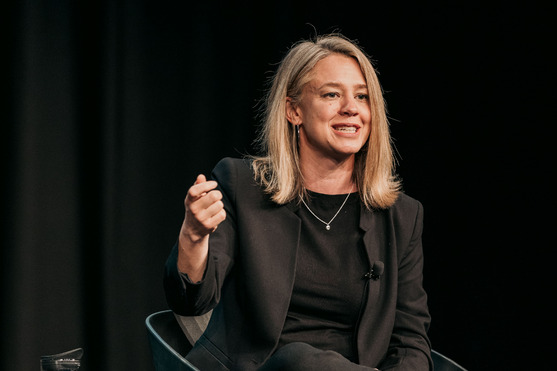Entrepreneurial philanthropy: what Yvon Chouinard shows us about how founders give differently

By: Antonia Ruffell | CEO, StartGiving
The incredible story of Patagonia and the news that Yvon Chouinard and his family are going to donate ownership of the company ‘to the earth’ has well and truly caught attention. Very few people are ever going to be able to do what he’s done, but there are some useful things we can all take from this extraordinary act of giving.
Entrepreneurs think differently
Even after creating such extraordinary material wealth, Chouinard has a modest lifestyle and has kept his social conscience. Like many entrepreneurs, it’s not all about the money or being on the front cover of Forbes. Chouinard is known for abhorring excessive wealth and claims “I never wanted to be a businessman.” For him, satisfaction comes from much more than riches – he’s driven by his values and his sense of purpose.
Most business owners don’t reject wealth to the extent of Chouinard, but there is a tendency among entrepreneurs to want to give back. Research by Fidelity Charitable in the US shows that entrepreneurs are more generous, giving on average 50% more annually than their non-entrepreneur peers.
Many of the famous philanthropists in the US have been some of its most successful entrepreneurs, from Andrew Carnegie and Rockefeller to Bill Gates and Mark Zuckerberg. A similar trend is emerging from Australia’s tech boom with the likes of Melanie Perkins and Cliff Obrecht, who have committed the vast majority of their wealth to charities, and Mike Cannon-Brooks, who is doing his bit, investing in opportunities to avert the climate crisis.
While giants of business like these grab the headlines, there are hundreds of other entrepreneurs who are similarly likely to give. There are now over 100 Australian tech companies valued at over $100 million and that has created many wealthy founders. If giving among Australia’s wealthy has flatlined, this new emerging group of entrepreneurs gives me hope.
Corporate philanthropy is flawed
It sounds simple, but it is much easier to give away money if it is yours – you’re not answerable to shareholders or to the legacy of your forefathers. Not everyone is going to be as altruistic as giving the whole company away, but the power of a private company is that you can make own decisions.
Chouinard is very clear that public companies simply can’t have the impact he’s striving for with Patagonia. He writes in his statement about the decision to donate the company that “Another path was to take the company public. What a disaster that would have been. Even public companies with good intentions are under too much pressure to create short-term gain at the expense of long-term vitality and responsibility.”
It has been argued that public companies are inherently flawed with regard to either long term planning or a serious review of the impact of their products and services to humanity and the planet, as they have to answer to shareholders and it is almost impossible to do anything meaningful in light of the pressure to deliver short term returns.
It is your responsibility to give back
A unique quality that I’ve observed in wealthy self-made founders is that they feel lucky about the scale of their success and feel a sense of responsibility to do something good with their money.
Chouinard is no exception. He is driven by a belief that you have a responsibility to do what you can with the resources you have. The resources he has is the company – which he believes has an enormous power to change society – whereas for others it is cash. Either way, whatever you have, Chouinard’s message is to use it.
“I have a little different definition of evil than most people. When you have the opportunity and the ability to do good and you do nothing, that’s evil. Evil doesn’t always have to be an overt act, it can be merely the absence of good,” he states in his memoir Let My People Go Surfing.
Entrepreneurs like Chouinard don’t sit back and watch bad things happen. If they see a problem, they try to fix it. They take active steps to change things for the better.
Take action today
It’s been a long time since Chouinard founded Patagonia out of his little blacksmith shop in Ventura, California. Social impact of the scale they have now didn’t happen overnight. Chouinard describes Patagonia as a 50 year ‘experiment in responsible business’.
In a Bloomberg interview, he comments: “A lot of businesspeople are going to read this and say: “Gee, when I get rich I’ll do this too.” But a real capitalist knows that $10 given today does a lot more good than $100 given 10 years from now. So even if you’re not rich, don’t wait. There are good organizations out there that can use $10.”
It’s an important lesson for any would-be philanthropist or social changemaker – start small, take the first step and build your philanthropy from there.
Entrepreneurs have the ability to have a profound impact – economic growth, productivity, employment – and the growing power of philanthropy. Will we see many people doing what Chouinard has done with Patagonia? Probably not to that scale. But will we see more philanthropy than before? Absolutely.
There is a new group of wealthy founders emerging in Australia who are socially conscious, progressive and generous with their time and money. Their problem-solving action-oriented mindset together with optimism and energy have the potential to change things for the better – and create a culture where giving when you’re successful becomes the expectation and norm.
Antonia Ruffell is CEO of StartGiving, an Australian not-for-profit inspiring a new movement of giving in the innovation community.